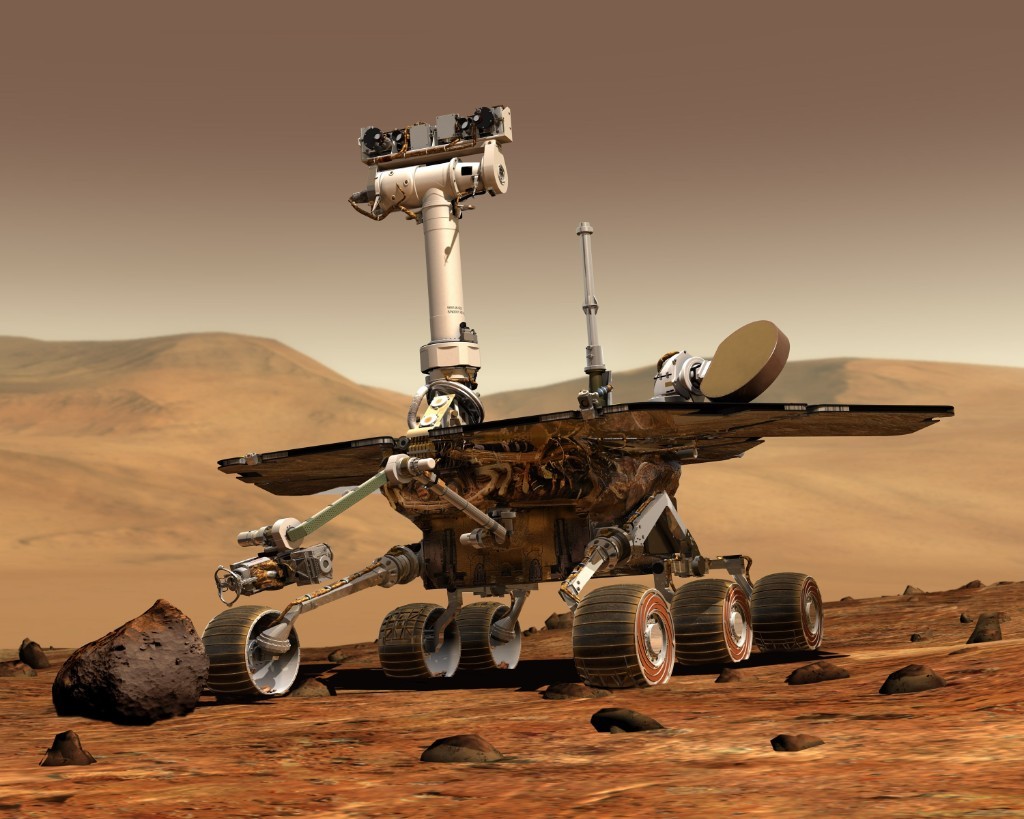In recent years, there has been a significant advancement in the field of Artificial Intelligence (AI) and Augmented Reality (AR). These technologies have become increasingly popular and have the potential to enhance virtual experiences in various fields such as gaming, education, healthcare, and...
The Role of Artificial Intelligence and Autonomous Robots in Various Industries: From Manufacturing to Healthcare

In recent years, artificial intelligence (AI) and autonomous robots have revolutionized various industries, from manufacturing to healthcare. These technologies have the potential to greatly improve efficiency, accuracy, and productivity in a wide range of tasks. AI refers to the ability of machines to mimic human intelligence and perform tasks that would normally require human intervention. Autonomous robots, on the other hand, are capable of operating independently and making decisions based on their environment.
In the manufacturing sector, AI and autonomous robots have transformed the production process. These machines can handle repetitive and mundane tasks, such as assembly line work, with greater speed and precision than humans. They can also work continuously without the need for breaks or rest, leading to increased productivity. With the integration of AI, these robots can even learn from their experiences and continuously improve their performance.
In the healthcare industry, AI and autonomous robots have the potential to revolutionize patient care. These technologies can assist in diagnosis, treatment planning, and even surgery. AI algorithms can analyze medical data, such as imaging scans and patient records, to identify patterns and make accurate predictions. Autonomous robots can perform complex surgeries with greater precision, reducing the risk of human error. They can also assist in patient care by providing companionship and monitoring vital signs.
As AI and autonomous robots continue to advance, their impact on various industries is expected to grow. However, it is important to address ethical concerns and ensure that these technologies are used responsibly. Regulations and guidelines need to be put in place to ensure the safety and privacy of individuals, as well as to prevent misuse of these technologies. With proper implementation and oversight, AI and autonomous robots have the potential to revolutionize industries and improve the lives of individuals worldwide.
AI and Robotics in Manufacturing
In recent years, the use of artificial intelligence (AI) and robotics in the manufacturing industry has grown rapidly. These technologies have revolutionized the way products are made, improving efficiency, productivity, and quality.
AI and robotics have enabled manufacturers to automate various tasks that were previously done manually. This includes assembly line operations, material handling, packaging, and quality control. By using AI algorithms, robots can perform these tasks with precision and at a much faster rate than humans.
One of the key benefits of AI and robotics in manufacturing is the ability to optimize production processes. By analyzing large amounts of data, AI systems can identify patterns and make predictions, allowing manufacturers to optimize production schedules, minimize downtime, and reduce waste. This not only improves productivity but also helps in cost savings.
Another area where AI and robotics have made a significant impact is in quality control. AI algorithms can analyze sensor data in real-time to detect defects or anomalies in the production process. This helps in identifying and resolving issues early on, ensuring that only high-quality products reach the market.
Furthermore, AI and robotics have also enabled manufacturers to improve worker safety. By automating hazardous or repetitive tasks, robots can reduce the risk of accidents and injuries. This not only enhances the well-being of workers, but also helps in maintaining a consistent level of productivity.
In summary, AI and robotics have transformed the manufacturing industry by automating tasks, optimizing production processes, improving quality control, and enhancing worker safety. As these technologies continue to advance, we can expect further innovations and improvements in the manufacturing sector.

The Role of Artificial Intelligence
Artificial Intelligence (AI) plays a crucial role in the development and implementation of autonomous robots. It enables robots to perceive and interpret their surroundings, make decisions, and perform tasks without human intervention. AI algorithms and machine learning techniques allow robots to learn from their experiences and improve their performance over time.
One of the key functionalities of AI in autonomous robots is perception. Through computer vision, robots can analyze visual data from cameras and sensors to understand their environment. This enables them to navigate and interact with objects and individuals in a safe and efficient manner. AI algorithms can also process and interpret other types of sensory data, such as audio signals, to enhance the robot's perception capabilities.
Decision-making and planning
AI enables autonomous robots to make informed decisions and plan their actions based on the data they gather and the goals they are given. Machine learning algorithms allow robots to learn from previous experiences and adapt their decision-making process accordingly. This is particularly important in dynamic environments where robots need to respond to changing conditions and unexpected events.
Furthermore, AI algorithms can optimize the robot's actions by considering various factors, such as time constraints and resource availability. This allows robots to efficiently plan their movements and tasks, maximizing their productivity and minimizing the risk of errors or accidents.
Collaboration and interaction
AI also plays a crucial role in enabling collaboration and interaction between autonomous robots and humans. Natural language processing algorithms allow robots to understand and respond to human commands and inquiries, facilitating communication and cooperation in various settings.
Additionally, AI algorithms can enable robots to learn from human demonstrations and interact with humans in a more intuitive and natural way. This opens up opportunities for robots to assist humans in tasks that require physical strength or precision, such as manufacturing or healthcare.
Conclusion
The role of AI in the development of autonomous robots is essential. It enables robots to perceive and interpret their surroundings, make informed decisions, and interact with humans in a collaborative manner. As AI continues to advance, we can expect even greater capabilities and applications for autonomous robots in various industries, from manufacturing to healthcare.



